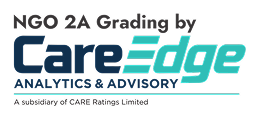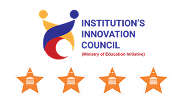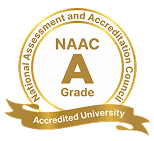19th Convocation More Details Online Programmes Click here Open House -2026 Click here
19th Convocation More Details Online Programmes Click here Open House -2026 Click here
ADMISSION ENQUIRY - 2026
Cognitive Computing
GANPAT UNIVERSITY |
||||||||||||||||||||||||||||||||||||||||||||||||||||||||||||||||||||||||||||||||||||||||||||
|
FACULTY OF ENGINEERING AND TECHNOLOGY |
||||||||||||||||||||||||||||||||||||||||||||||||||||||||||||||||||||||||||||||||||||||||||||
|
Programme |
Bachelor of Technology |
Branch/Spec. |
Computer Science & Engineering (BDA) |
|||||||||||||||||||||||||||||||||||||||||||||||||||||||||||||||||||||||||||||||||||||||||
|
Semester |
VII |
Version |
1.0.0.0 |
|||||||||||||||||||||||||||||||||||||||||||||||||||||||||||||||||||||||||||||||||||||||||
|
Effective from Academic Year |
2022-23 |
Effective for the batch Admitted in |
June 2019 |
|||||||||||||||||||||||||||||||||||||||||||||||||||||||||||||||||||||||||||||||||||||||||
|
Subject code |
2CSE712 |
Subject Name |
COGNITIVE COMPUTING |
|||||||||||||||||||||||||||||||||||||||||||||||||||||||||||||||||||||||||||||||||||||||||
|
Teaching scheme |
Examination scheme (Marks) |
|||||||||||||||||||||||||||||||||||||||||||||||||||||||||||||||||||||||||||||||||||||||||||
|
(Per week) |
Lecture(D) |
Practical (Lab.) |
Total |
CE |
SEE |
Total |
||||||||||||||||||||||||||||||||||||||||||||||||||||||||||||||||||||||||||||||||||||||
|
L |
TU |
P |
TW |
|||||||||||||||||||||||||||||||||||||||||||||||||||||||||||||||||||||||||||||||||||||||||
|
Credit |
3 |
0 |
2 |
0 |
5 |
Theory |
40 |
60 |
100 |
|||||||||||||||||||||||||||||||||||||||||||||||||||||||||||||||||||||||||||||||||||
|
Hours |
3 |
0 |
4 |
0 |
7 |
Practical |
60 |
40 |
100 |
|||||||||||||||||||||||||||||||||||||||||||||||||||||||||||||||||||||||||||||||||||
|
Pre-requisites: |
||||||||||||||||||||||||||||||||||||||||||||||||||||||||||||||||||||||||||||||||||||||||||||
|
Basics of Artificial Intelligence - Knowledge based Agent, Basics of Machine learning and Neural Network |
||||||||||||||||||||||||||||||||||||||||||||||||||||||||||||||||||||||||||||||||||||||||||||
|
Learning Outcome: |
||||||||||||||||||||||||||||||||||||||||||||||||||||||||||||||||||||||||||||||||||||||||||||
|
Upon Completion of the course, the students will be able to:
|
||||||||||||||||||||||||||||||||||||||||||||||||||||||||||||||||||||||||||||||||||||||||||||
|
Theory syllabus |
||||||||||||||||||||||||||||||||||||||||||||||||||||||||||||||||||||||||||||||||||||||||||||
|
Unit |
Content |
Hrs |
||||||||||||||||||||||||||||||||||||||||||||||||||||||||||||||||||||||||||||||||||||||||||
|
1 |
INTRODUCTION TO COGNITIVE SCIENCE AND COGNITIVE COMPUTING WITH AI: Cognitive Computing, Cognitive Psychology, The Architecture of the Mind, The Nature of Cognitive Psychology, Cognitive architecture, Cognitive processes, The Cognitive Modeling Paradigms, Declarative / Logic based Computational cognitive modeling, connectionist models –Bayesian models. Introduction to Knowledge-Based AI – Human Cognition on AI – Cognitive Architectures |
12 |
||||||||||||||||||||||||||||||||||||||||||||||||||||||||||||||||||||||||||||||||||||||||||
|
2 |
COGNITIVE COMPUTING WITH INFERENCE AND DECISION SUPPORT SYSTEMS: Intelligent Decision making, Fuzzy Cognitive Maps, learning algorithms: Nonlinear Hebbian Learning, Data driven NHL, Hybrid learning, Fuzzy Grey cognitive maps, Dynamic Random fuzzy cognitive Maps |
11 |
||||||||||||||||||||||||||||||||||||||||||||||||||||||||||||||||||||||||||||||||||||||||||
|
3 |
COGNITIVE COMPUTING WITH MACHINE LEARNING: Machine learning Techniques for cognitive decision making, Hypothesis Generation and Scoring, Natural Language Processing, Representing Knowledge, Taxonomies and Ontologies, N-Gram models, Application |
11 |
||||||||||||||||||||||||||||||||||||||||||||||||||||||||||||||||||||||||||||||||||||||||||
|
4 |
CASE STUDIES: Cognitive Systems in health care, Cognitive Assistant for visually impaired – AI for cancer detection, Predictive Analytics, Text Analytics, Image Analytics, Speech Analytics – IBM Watson – Introduction to IBM’s Power AI Platform - Introduction to Google’s TensorFlow Development Environment |
11 |
||||||||||||||||||||||||||||||||||||||||||||||||||||||||||||||||||||||||||||||||||||||||||
|
Self learning: CASE studies |
||||||||||||||||||||||||||||||||||||||||||||||||||||||||||||||||||||||||||||||||||||||||||||
|
Practical content |
||||||||||||||||||||||||||||||||||||||||||||||||||||||||||||||||||||||||||||||||||||||||||||
|
Practicals will be based on natural language processing pipeline, Visual recognition pipeline and various Watson assistant services - text to speech, speech to text, language translator, chatbot, knowledge discovery. |
||||||||||||||||||||||||||||||||||||||||||||||||||||||||||||||||||||||||||||||||||||||||||||
|
Text Books |
||||||||||||||||||||||||||||||||||||||||||||||||||||||||||||||||||||||||||||||||||||||||||||
|
1 |
Hurwitz, Kaufman, and Bowles, “Cognitive Computing and Big Data Analytics”, Wiley, Indianapolis. |
|||||||||||||||||||||||||||||||||||||||||||||||||||||||||||||||||||||||||||||||||||||||||||
|
Reference Books |
||||||||||||||||||||||||||||||||||||||||||||||||||||||||||||||||||||||||||||||||||||||||||||
|
1 |
Jerome R. Busemeyer, Peter D. Bruza, “Quantum Models of Cognition and Decision”, Cambridge University Press. |
|||||||||||||||||||||||||||||||||||||||||||||||||||||||||||||||||||||||||||||||||||||||||||
|
2 |
Emmanuel M. Pothos, Andy J. Wills, “Formal Approaches in Categorization”, Cambridge University Press. |
|||||||||||||||||||||||||||||||||||||||||||||||||||||||||||||||||||||||||||||||||||||||||||
|
3 |
Nils J. Nilsson, “The Quest for Artificial Intelligence”, Cambridge University Press. |
|||||||||||||||||||||||||||||||||||||||||||||||||||||||||||||||||||||||||||||||||||||||||||
|
4 |
Neil Stillings, Steven E. Weisler, Christopher H. Chase and Mark H. Feinstein, “Cognitive Science: An Introduction”, MITPress. |
|||||||||||||||||||||||||||||||||||||||||||||||||||||||||||||||||||||||||||||||||||||||||||
|
Course Outcome |
||||||||||||||||||||||||||||||||||||||||||||||||||||||||||||||||||||||||||||||||||||||||||||
|
Cos |
Description |
|||||||||||||||||||||||||||||||||||||||||||||||||||||||||||||||||||||||||||||||||||||||||||
|
CO1 |
Understand various concepts of cognitive computing |
|||||||||||||||||||||||||||||||||||||||||||||||||||||||||||||||||||||||||||||||||||||||||||
|
CO2 |
Understand the evolution of Watson services from the original DeepQA architecture |
|||||||||||||||||||||||||||||||||||||||||||||||||||||||||||||||||||||||||||||||||||||||||||
|
CO3 |
Describe various case studies related to cognitive computing. |
|||||||||||||||||||||||||||||||||||||||||||||||||||||||||||||||||||||||||||||||||||||||||||
|
CO4 |
Develop cognitive computing related applications, like Chabot. |
|||||||||||||||||||||||||||||||||||||||||||||||||||||||||||||||||||||||||||||||||||||||||||
|
Mapping of CO and PO:
|
||||||||||||||||||||||||||||||||||||||||||||||||||||||||||||||||||||||||||||||||||||||||||||







